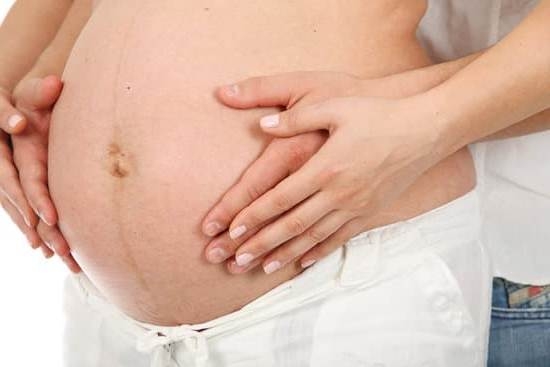Early pregnancy symptoms can be a crucial indicator for women who suspect they may be expecting. These signs vary from woman to woman and can manifest in surprising ways. Understanding these early pregnancy symptoms is key to recognizing the changes your body may be undergoing. In this article, we delve into the science behind these symptoms, common ones to look out for, as well as uncommon ones that may catch you off guard.
Many women wonder how early pregnancy symptoms can begin and what factors influence their onset. It’s essential to be aware of these signs as they can help confirm a pregnancy and prompt necessary lifestyle adjustments. From nausea and fatigue to mood swings and food aversions, early pregnancy symptoms can affect various aspects of a woman’s daily life. Learning more about when these symptoms typically start and why they occur can provide valuable insight into your own experience.
While some early pregnancy symptoms are more common, others are less frequently discussed but equally important to recognize. By being informed about both types of symptoms, women can better navigate the early stages of pregnancy with more confidence and peace of mind.
In the following sections, we will explore the differences between common and uncommon early pregnancy symptoms, offering tips on managing them effectively. Keep reading to learn more about what to expect when it comes to early signs of pregnancy.
The Science Behind Early Pregnancy Symptoms
Early pregnancy symptoms are a result of hormonal changes in the body as it prepares for the growth and development of a baby. One of the key hormones involved in pregnancy is human chorionic gonadotropin (hCG), which is produced by the cells that will form the placenta. The presence of hCG in a woman’s body is what triggers many of the classic symptoms of pregnancy, such as nausea, fatigue, and breast tenderness.
Progesterone is another essential hormone during pregnancy. It helps to maintain the uterine lining for implantation and supports the growing embryo. Increased levels of progesterone can lead to symptoms like bloating, constipation, and mood swings. Estrogen levels also rise significantly during pregnancy, contributing to symptoms like heightened sense of smell and skin changes.
In addition to hormonal changes, early pregnancy symptoms can also be attributed to physical changes in the body. For example, increased blood flow to the pelvic region and uterus can cause headaches and dizziness. The expanding uterus may also put pressure on the bladder, leading to frequent urination. Understanding these physiological processes can help women recognize and cope with early pregnancy symptoms more effectively.
| Common Early Pregnancy Symptoms | Uncommon Early Pregnancy Symptoms |
|---|---|
| Nausea | Dizziness |
| Fatigue | Headaches |
| Breast Tenderness | Vision Changes |
Common Early Pregnancy Symptoms to Look Out For
Pregnancy is a unique experience for every woman, and early pregnancy symptoms can vary from person to person. However, there are some common signs that many women may experience in the early weeks of pregnancy. One of the most well-known early symptoms is a missed period, which is usually the first indicator that prompts women to take a pregnancy test.
Other common early pregnancy symptoms include nausea, fatigue, breast tenderness, frequent urination, and mood swings. These symptoms are often attributed to hormonal changes that occur as the body prepares for pregnancy.
Nausea, often referred to as morning sickness, can affect pregnant women at any time of the day and may range from mild queasiness to severe vomiting. This symptom typically begins around the sixth week of pregnancy but can start earlier for some women. Fatigue is another common early pregnancy symptom that many women experience in the first trimester.
The body requires extra energy to support the growing fetus, leading to feelings of tiredness and exhaustion. Breast tenderness is also a prevalent symptom as hormonal changes cause breasts to become swollen, sore, and sensitive.
In addition to these symptoms, frequent urination is another common sign of early pregnancy. The increased need to urinate is caused by hormonal changes and the expanding uterus putting pressure on the bladder. Mood swings are also common due to fluctuating hormone levels during pregnancy.
It’s essential for pregnant women to be aware of these common early symptoms but also remember that not every woman will experience all of them. If you suspect you might be pregnant and are noticing any combination of these signs, it’s crucial to take a home pregnancy test or consult with your healthcare provider for confirmation.
| Early Pregnancy Symptom | Description |
|---|---|
| Nausea (Morning Sickness) | May range from mild queasiness to severe vomiting; typically starts around the sixth week of pregnancy |
| Fatigue | Feelings of tiredness and exhaustion due to increased energy requirements for supporting fetal growth |
| Breast Tenderness | Breasts become swollen, sore, and sensitive as hormonal changes take place in preparation for pregnancy |
Uncommon Early Pregnancy Symptoms
When it comes to early pregnancy symptoms, most people are familiar with common signs such as morning sickness, fatigue, and breast tenderness. However, there are also some lesser-known symptoms that can indicate pregnancy. It’s important to be aware of these less common signs so that you can recognize them if they occur.
Here are some uncommon early pregnancy symptoms to look out for:
- Increased sense of smell: Some women may experience heightened sensitivity to odors in the early stages of pregnancy.
- Changes in skin: Pregnancy hormones can sometimes lead to changes in skin appearance or texture, such as acne breakouts or darkening of the skin.
- Constipation: Hormonal changes during pregnancy can slow down digestion, leading to constipation for some expectant mothers.
Although these symptoms are not as widely known as others, they can still be indicators of early pregnancy. It’s essential to pay attention to your body and take note of any unusual changes that may occur.
In addition to the more common signs of pregnancy, recognizing these uncommon symptoms can help provide a clearer picture of how your body is responding to early pregnancy. If you experience any of these lesser-known signs along with more typical symptoms, it may be a good idea to take a home pregnancy test or consult with a healthcare provider for confirmation.
How Soon Can Early Pregnancy Symptoms Begin?
Timeline of Early Pregnancy Symptoms
In most cases, early pregnancy symptoms can start as soon as one week after conception. Some women even report feeling symptoms just a few days after conception, although this is less common. The timing of when these symptoms appear can vary from woman to woman, but typically they may start between the 4th and 6th week of pregnancy.
Early Signs to Watch Out For
During this early stage of pregnancy, women may experience a range of different symptoms that can indicate they are pregnant. These may include morning sickness, fatigue, breast tenderness, and frequent urination. It is important to note that these symptoms can also be attributed to other factors, so it is essential to take a pregnancy test for confirmation if you suspect you may be pregnant.
Be Mindful of Your Body
It is crucial to pay attention to your body and how it is feeling during this time. While some women may begin experiencing early pregnancy symptoms very soon after conception, others may not feel anything until later on in their pregnancy.
Every person’s body is different, and it is important to listen to what your body is trying to tell you. If you suspect you may be pregnant and are experiencing any unusual symptoms, it is always best to consult with a healthcare provider for further guidance and support.
Factors That Influence the Onset of Early Pregnancy Symptoms
When it comes to early pregnancy symptoms, the timeline in which they appear can vary from woman to woman. While some may start experiencing signs of pregnancy as early as a week after conception, others may not notice any symptoms until several weeks later. The factors that influence when early pregnancy symptoms begin to show can be both biological and external.
Here are some key factors that can impact when you might start noticing early pregnancy symptoms:
- Hormonal Levels: The levels of hormones like estrogen and progesterone in your body can play a significant role in when symptoms of pregnancy become noticeable. These hormones fluctuate greatly during early pregnancy, and this hormonal shift can trigger various symptoms.
- Individual Differences: Each woman’s body is unique, and this means that the way in which early pregnancy symptoms manifest can vary widely. Factors such as genetics, overall health, and lifestyle choices can all influence how soon you may experience signs of pregnancy.
- Emotional State: Stress and emotional well-being can also affect how early pregnancy symptoms present themselves. High levels of stress or anxiety can sometimes mask physical signs of pregnancy or delay their onset.
Understanding these factors can help you better navigate the uncertainty surrounding when you might expect to start noticing early pregnancy symptoms. It’s essential to remember that every woman’s experience with pregnancy is different, so don’t be alarmed if your symptoms differ from those of someone else. If in doubt about any potential signs or changes in your body, always consult with a healthcare provider for personalized guidance and support.
Tips for Managing Early Pregnancy Symptoms
During early pregnancy, many women may experience a range of symptoms that can be challenging to manage. From morning sickness to fatigue, these symptoms can take a toll on the pregnant woman’s overall well-being. However, there are some tips and strategies that can help alleviate these discomforts and make the early stages of pregnancy more manageable.
Stay Hydrated and Eat Well
One of the key ways to manage early pregnancy symptoms is by staying hydrated and eating a well-balanced diet. Drinking plenty of water can help reduce nausea and prevent dehydration, while eating small, frequent meals throughout the day can help keep blood sugar levels stable and combat fatigue. It is also essential to choose nutritious foods that provide essential vitamins and minerals for both the mother and baby’s health.
Get Plenty of Rest
Fatigue is a common symptom during early pregnancy, so getting enough rest is crucial for managing this symptom. Pregnant women should prioritize sleep and listen to their body’s cues when it comes to rest. Taking short naps during the day, going to bed earlier, and creating a relaxing bedtime routine can all help promote better sleep quality and combat feelings of tiredness.
Engage in Gentle Exercise
While it may seem counterintuitive to exercise when experiencing early pregnancy symptoms, gentle physical activity can actually be beneficial. Engaging in activities like walking, prenatal yoga, or swimming can help boost energy levels, improve circulation, and reduce stress. It is important to listen to your body and choose exercises that are safe for both you and your baby during this time.
By incorporating these tips for managing early pregnancy symptoms into your daily routine, you may find some relief from discomforts like morning sickness, fatigue, and mood swings. Remember that every woman’s experience with early pregnancy symptoms is unique, so it is essential to find what works best for you. If you have concerns about your symptoms or need additional support, don’t hesitate to reach out to your healthcare provider for guidance.
When to See a Doctor About Early Pregnancy Symptoms
While experiencing early pregnancy symptoms can be an exciting time for many women, it is important to know when it is necessary to seek medical attention. If you are unsure about how early pregnancy symptoms are manifesting in your body or if you are concerned about the severity of these symptoms, it is recommended to consult with a healthcare provider.
This is especially crucial for first-time mothers who may not be familiar with what is considered normal during early pregnancy.
Certain red flags that indicate the need to see a doctor about early pregnancy symptoms include persistent and severe nausea and vomiting, sharp abdominal pain or cramping, heavy vaginal bleeding, dizziness or fainting spells, and high fever. These symptoms could signal more serious conditions such as an ectopic pregnancy, miscarriage, or infection that require immediate medical attention.
It is always better to err on the side of caution and consult with a healthcare professional if you are experiencing any worrisome signs during the early stages of pregnancy.
In addition to physical symptoms, mental health concerns should also be taken seriously during early pregnancy. If you are feeling overwhelmed, anxious, or depressed as a result of hormonal changes or the stress of impending motherhood, do not hesitate to reach out to your doctor for support and guidance.
Seeking help early on can prevent these issues from escalating and ensure a healthier and happier journey through pregnancy. Remember that taking care of your emotional well-being is just as important as managing physical symptoms during this time.
Conclusion
Recognizing early pregnancy symptoms is crucial for expectant mothers as it allows for timely care and support throughout the pregnancy journey. By understanding how early pregnancy symptoms manifest and being aware of the common signs such as nausea, fatigue, and breast tenderness, women can take necessary steps to ensure a healthy pregnancy.
It is important to remember that every woman’s experience with early pregnancy symptoms may vary, but having knowledge about these potential indicators can help in detecting a possible pregnancy early on.
As discussed in this article, the onset of early pregnancy symptoms can be influenced by various factors such as individual health conditions, hormone levels, and personal sensitivity to changes in the body. By staying informed about these influences, women can better prepare themselves both physically and emotionally for the changes that come with early pregnancy.
Learning to manage and alleviate symptoms through tips like staying hydrated, eating small frequent meals, and getting plenty of rest can also contribute to a more comfortable pregnancy experience.
In conclusion, being proactive about recognizing and understanding early pregnancy symptoms is key in ensuring a positive outcome for both mother and baby. While some symptoms may be common and expected, others may require medical attention.
It is always recommended to consult with a healthcare provider if experiencing any concerning or severe symptoms during early pregnancy. By staying informed, seeking appropriate care when needed, and taking steps to manage discomforts, women can navigate through the journey of pregnancy with confidence and peace of mind.
Frequently Asked Questions
How Soon Can You Get Symptoms of Pregnancy?
Symptoms of pregnancy can start as early as one to two weeks after conception. Some women may experience signs like fatigue, nausea, breast tenderness, and frequent urination during the early stages of pregnancy. However, every woman is different, so symptoms can vary in timing and intensity.
What Symptoms Do You Have at 1 Week Pregnant?
At one week pregnant, it is unlikely for most women to experience any noticeable physical symptoms. Since ovulation typically occurs around 14 days before a period starts and pregnancy is calculated from the first day of the last menstrual period, one week pregnant is essentially around the time of ovulation rather than implantation or conception.
How Soon Can You Know if You Are Pregnant?
You can know if you are pregnant as soon as 7-10 days after conception by taking a pregnancy test. Home pregnancy tests work by detecting levels of human chorionic gonadotropin (hCG) hormone in urine, which increases rapidly in early pregnancy. Blood tests conducted at a doctor’s office can also confirm pregnancy sooner than urine tests.

Welcome to my fertility blog. This is a space where I will be sharing my experiences as I navigate through the world of fertility treatments, as well as provide information and resources about fertility and pregnancy.





